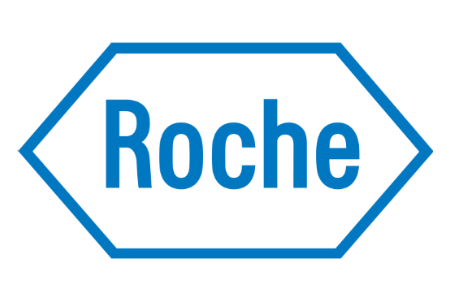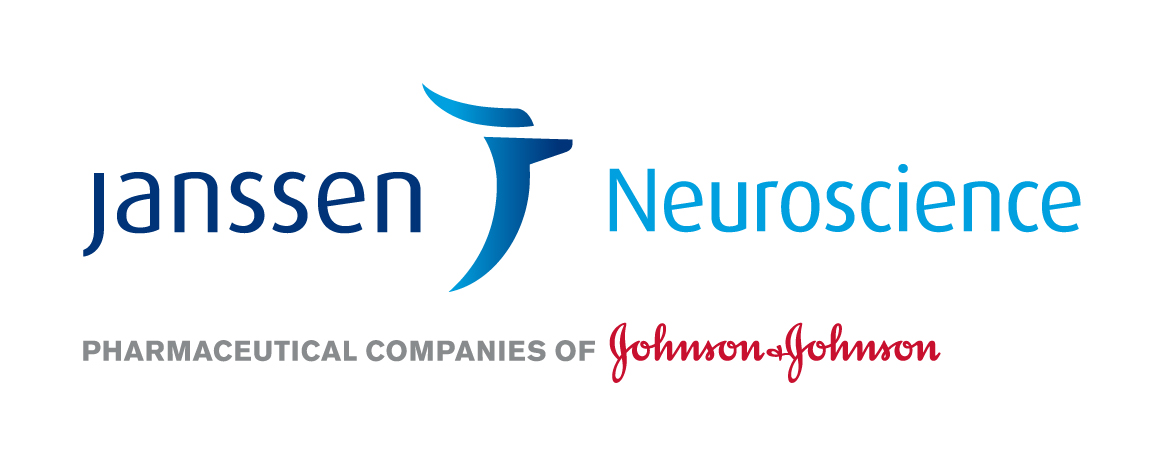
- This event has passed.
ParadigMS 8th Belgian Symposium 2023
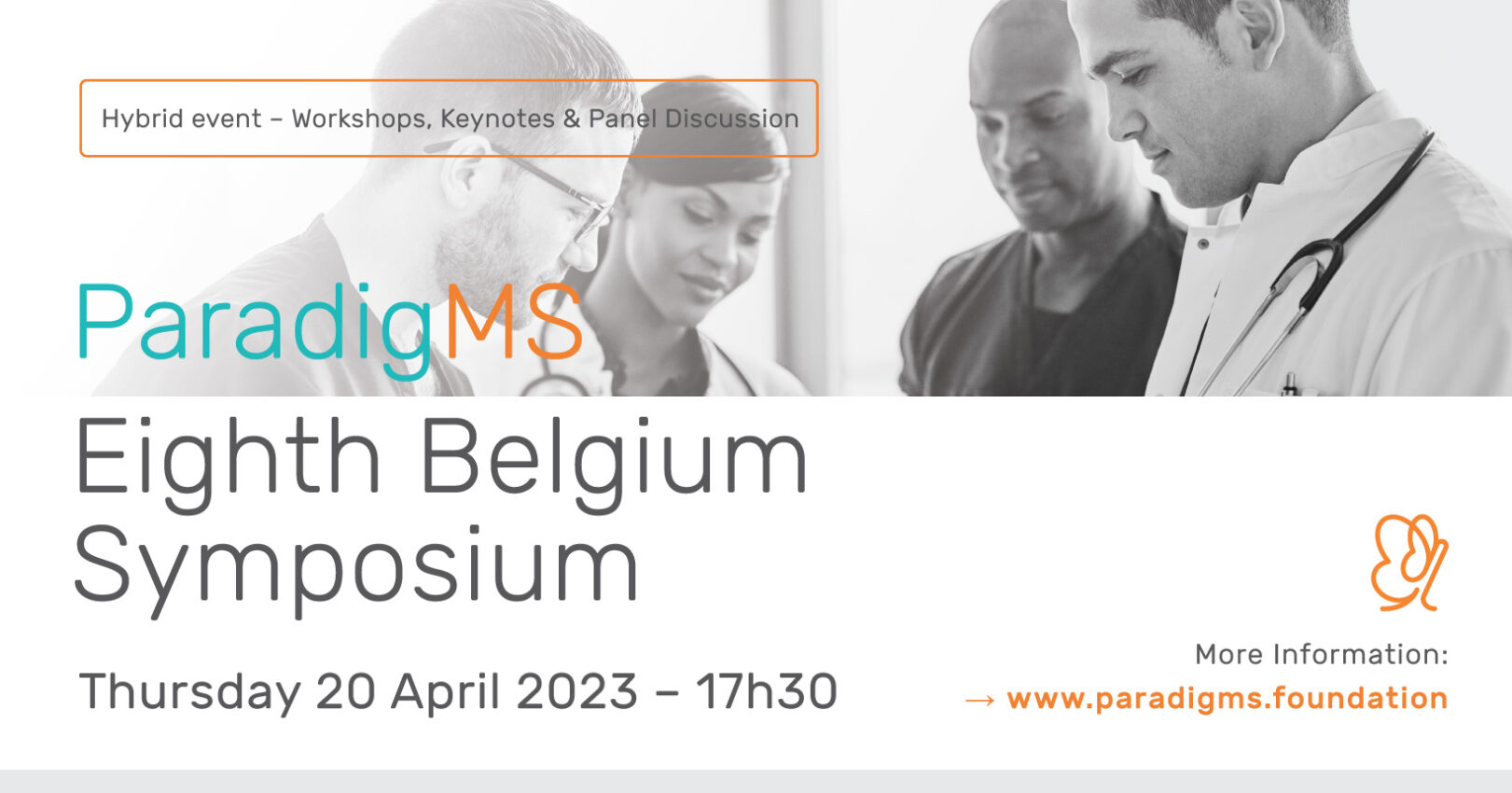
Register now for the eighth ParadigMS Belgian Symposium!
ParadigMS Foundation invites Belgian neurologists, MS nurses and other interested professionals to mark Thursday 20th April 2023 in their agenda!
The workshops, plenary session, sponsored break-outs and panel discussions bring you new insights that improve your day-to-day clinical practice.
Why participate?
• As a neurologist or nurse: Get inspired by MS experts and share your own experiences, meet colleagues and discover the work of other neurologists in the field of MS.
• As a resident: Get familiar with this specific field of neurology and build a networking within Belgian MS care.
• As an non-health care practitioner: Hear the view of MS experts and connect to the Belgian MS treatment and care community.
The top 5 objectives to make your participation a success?
1. Ask your question or share a comment related to MS treatment and care
2. Meet colleagues that work on similar clinical cases
3. Get informed on some of the latest news related to MS treatment and care
4. Establish new contacts that can support your daily clinical work or research project
5. Learn from the international experience from our speakers
Join the live stream
As from Monday 17th April, you find here the links to access the live stream of the ParadigMS Symposium. It allows you to test your connection.
- Access the live stream of the plenary session via this link.
- Access the live stream of the Roche sponsored break-out session via this link (Rethinking Treatment Strategies in MS by Dr. Tatjana Reynders).
- Access the live stream of the Janssen sponsored break-out session via this link (Paradigm shift in first line MS treatment by Dr. Bart Van Wijmeersch).
IMPORTANT: You are directed to a form to leave your details. Once you submit, you are directed to the page with the live stream. Each time you close the browser window of the live stream, you can re-enter via the same procedure (leaving your details etc).
We collect your information via this form to be able to accurately evaluate the participation to our Symposium.
Translation: You can select your language in the live stream window. If you join onsite, you can also access the translation via the live stream.
Q&A and comments during the plenary session: Submit them via Slido.com with event code: #1434258 or directly in the Slido window available at the right of the live stream window.
Fees, translation and accreditation
The Symposium is offered for free, thanks to our sponsors whom were not involved in the elaboration of the scientific programme and presentations.
All plenary sessions are simultaneously translated from English to Dutch and French.
RIZIV/INAMI accreditation will be requested for the Workshops (1 hour) and the keynotes and panel discussion (1 hour) – this accreditation applies to Belgian physicians only.
- Programme
- Workshop & Keynote abstract
- Speakers
- Sponsors
- FAQ
- Practical
- Sponsored break-outs
Programme
ParadigMS Belgium Symposium 2021 – Thursday 24th June
Hybrid
| Time | Programme |
| 14:00– 17:00 | Pre-symposium online 1-1 meetings session (online) |
| 17:00 – 17:30 | Pre- symposium on-site 1-1 meetings session ( Van Der Valk) |
| 17:00 – 17:30 | Welcome coffee Worshop 1 ( at Van Der Valk) |
| 17:30 – 19:00 | Workshop 1: Risk Manegment in the Treatment of MS (at Van Der Valk ) Workshop 2: Individualized Prognosis in MS- clinical cases ( online) |
| 18:30 – 19:30 | Sign-in for the lectures and walking dinner ( at Van Der Vlak ) |
| 19:00 – 19:30 | Sponsored break-out 1- New approaches to personalised medicine in MS: novel endpoints by BMS ( Van Der Valk and online) Sponsored break out 2- Smouldering part of the disease DMTs- what remains to achieve by Sanofi (online) |
| 19:30 – 19:45 | Welcome and Introduction ( on-site and online) |
| 19:45 – 20:10 | Keynote and Q&A: Innate Immunity and the Role of Microglia in MS (on-site and online) |
| 20:10 – 20:35 | Q&A and Panel Discussion on topics of the workshops and the keynote (on-site and online) |
| 21:05 – 21:30 | Networking with coffee and dessert ( Van Der Valk) |
| 21:05 – 22:15 | Post-symposium 1-1 meeting session (online) Post-symposium 1-1 meeting session ( Van Der Vlak) |
| Speaker | Workshop Abstract |
|---|---|
| Melinda Magyari | Real-life data on switching medication |
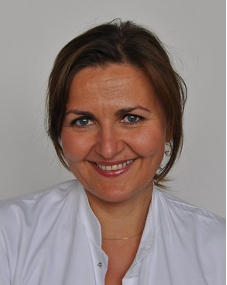 | While the increasing number of highly effective immunotherapies for multiple sclerosis has improved disease control, no disease modifying therapy (DMT) is entirely effective in halting disease activity. Switching DMT should therefore be considered in cases of breakthrough disease or an inadequate response to therapy, intolerability or specific side effects, adverse events, family planning, compliance issues, psychosocial reasons, and economic reasons. The aging MS population also raises the need for de-escalation of DMT, emphasizing the importance of the risks and benefits of such a switch which should be considered on a case-by-case basis. Real-life data can contribute with evidence on predictors of treatment response, guide the selection of the most appropriate DMT for individual patients, and inform treatment decisions when switching DMTs. |
| Vincent Van Pesch | Immunology and the mechanisms of immune system dysfunction |
 | Immunology is rapidly changing, increasingly complex and interdisciplinary discipline and has entered the field of neurology for several diseases such as Multiple Sclerosis (MS), neuromyelitis optica, myasthenia gravis or other less common disorders. This workshop will cover basic immunology concepts, including the different types of immune cells and their function, as well as the mechanisms of immune system activation and regulation. It will also provide the basis for understanding the role of immune cells and cytokines in the development of MS and the mechanisms of tissue damage, as well as the mode of action of disease-modifying therapies. Participants will have the opportunity to engage in interactive discussions and case-based learning activities, allowing for a more in-depth understanding of the functioning of the immune system and its relevance for MS and the treatment of immune-mediated neurological disorders. |
| Speaker | Keynote Abstract |
|---|---|
| Niels Hellings | Epstein Barr Virus and Multiple Sclerosis: Old Wine in New Bottles? |
 | Epstein Barr Virus (EBV) and its possible involvement in the etiology of multiple sclerosis (MS) has regained a lot of attention lately. But did we really learn something new or do recent reports merely confirm what has been known for many years? Did we get any further than the paradigms which have been textbook knowledge for some time? In my talk, I will summarize the most important facts on EBV and MS and emphasize the elements that are still unknown and should be subject of future research to get any idea about the pathogenicity of this herpes virus in MS. I will touch upon the limitations of reported studies and conclude by discussing possible therapeutic approaches that target EBV and may be considered once causality can be definitely proven one day. |
| Letizia Leocani | New technologies in the neurological field (OCT, evoked potentials, remote monitoring, AI): What can I use today? And what is coming? |
 | Today, evoked potentials and OCT are routinely used to detect subclinical involvement of eloquent pathways, to confirm relapses or to monitor demyelination, remyelination and axonal loss in trials targeting remyelination and neuroprotection. On the other hand, extensive research, also on a large scale, is being conducted to validate and promote the use of digital technologies for remote monitoring, with the final aim to ease disease management and to allow to empower self-monitoring by people with MS. All these measures, to be integrated in the large portfolio already available including biomarkers and neuroimaging, will require computing power and novel processing techniques, from statistical approaches to artificial intelligence. |
| Speaker | Biography |
|---|---|
 | Melinda Magyari is the director of The Danish Multiple Sclerosis Registry (link: www.dmsr.dk/) and a consultant neurologist at the Danish Multiple Sclerosis Center (COI). Her major research area is in multiple sclerosis and other inflammatory disorders of the central nervous system with a special interest in the changing epidemiology and gender differences. Using nationwide population-based data sources her research addresses questions on comorbidities, reproductive issues, risk factors and socioeconomic consequences in multiple sclerosis. She is involved in pharmacoepidemiological studies investigating the effectiveness and long-term safety of disease modifying therapies. |
 | Niels Hellings is Director of the Biomedical research Institute (BIOMED) and Professor Immunology at the Faculty of Medicine and Life Sciences of Hasselt University (COI). He graduated as master in bioscience-engineering at the Catholic University of Leuven (1996) and consequently obtained a PhD in immunology at Hasselt University (2000). He was visiting postdoctoral scientist at McGill University (Montréal), before returning to Hasselt University to set up his own research group. Currently, Niels Hellings is director of the biomedical research institute (BIOMED) and professor in immunology at the faculty of Medicine and Life Sciences at Hasselt University. He heads the neuroimmune connections & repair (NIC&R) lab that includes 2 tenure track professors, 3 post docs, 15 predocs and 2 technicians and published 110 peer reviewed articles (H factor: 35; >3800 cites). The NIC&R lab focuses on immune mediated central nervous system damage and repair. To study this, a wide variety of immunological and glial cell assays are applied including functional human in vitro assays and high dimensional flow cytometry. Apart from human in vitro studies, experimental animal models of neuroinflammation and -repair are up and running. In addition to basic research, collaborative valorization projects are set up with Flemish and international Biotech and Pharma. Niels Hellings is board member of the Belgian Immunological Society and Flanders Vaccine vzw. |
 | Letizia Leocani is Associate professor of Neurology at Vita-Salute San Raffaele University, Neurologist in the Neurorehabilitation Unit of the Neurological Dep.t and supervisor of the Experimental neurophysiology Unit and of Magnetic IntraCerebral Stimulation (MagICSI) center – Institute of Experimental Neurology, IRCCS Ospedale San Raffaele (COI). After her medical degree, she obtained a PhD in Human Physiology and Neurology specialty and she has been Research Fellow at the Human Motor Control Section of the National Institutes of Health in Bethesda-USA. She is Co-Chair of the Clinical Neurophysiology scientific panel of the European Academy of Neurology. Her fields of interest involve translational validation of electrophysiological (advanced EEG analysis, evoked and cognitive potentials) and structural (optical coherence tomography – OCT) markers of diseases of the central nervous system and of treatment strategies using non invasive brain stimulation to potentiate the effects of drugs and neurorehabilitation. |
 | Van Pesch served as neurology resident at the Department of Neurology, Saint-Luc Hospital and then progressed in positions from Adjunct Clinical Head to Associate Clinical Head and finally to Adjunct Chief of Neurology Department at the Cliniques Universitaires Saint-Luc (COI). He is also responsible for the coordination and supervision of the neurophysiology unit and is consultant for the clinical biology department concerning neuro-immunological analysis. He obtained his medical degree in 1999 from the UCLouvain and then completed his PhD thesis in neuroimmunology in 2003. At the UCLouvain, Dr Van Pesch is a Professor of Neurology and is responsible for teaching neuroimmunology and cerebrospinal fluid/neurochemistry analysis. He is the Principal investigator of the Neurochemistry Unit at the Institute of Neuroscience currently supervising 2 PhD students. Dr Van Pesch also greatly contributes to scientific publications and has over 169 published papers in a number of renowned journals. He is also co-editor of Frontiers Neurology, section of Multiple Sclerosis and neuroimmunology and section of Neuroepidemiology and has Co-editor of the Acta Neurologica Belgica between 2014 and 2022. |
| Chair | Biography |
|---|---|
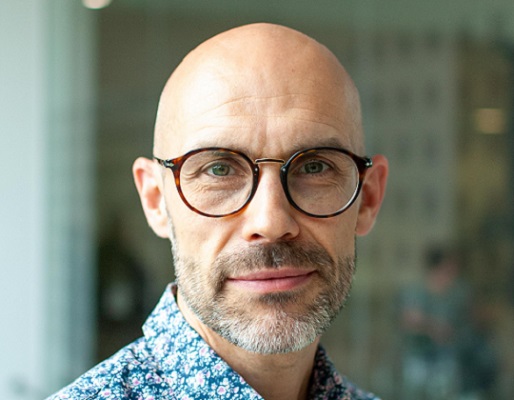 | Bart Van Wijmeersch is a neurologist specialized in Multiple Sclerosis. He is medical director of the Rehabilitation and MS Center in Pelt where he leads the multidisciplinary MS-team. Furthermore, he is an associate professor of Neurology at the University of Hasselt, affiliated with the Biomedical Institute, where he’s involved in pre-clinical as well as the clinical research on MS at the biomedical institute (BIOMED). He has a supporting role in all the immunological research on blood- and CSF samples of persons with MS and in EAE-animal models, as well as in the rehabilitation research at REVAL. Immunological, Biomarker, MRI, Electrophysiological and Rehabilitation research in MS come together in this way. He has an educational role in the faculty of medicine and physiotherapy. He’s a member of the Belgian Study Group of Multiple Sclerosis, first President of ParadigMS and a member of advisory boards of different pharmaceutical companies with interest in Multiple Sclerosis. As acknowledgment of his scientific work, he received an honorary award of the Flemish government in the summer of 2019. |
| Moderator | Biography |
|---|---|
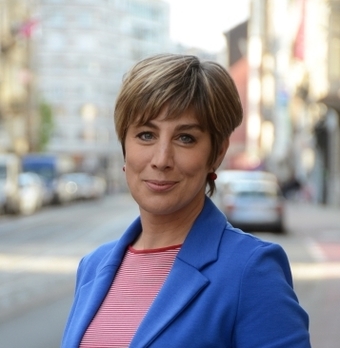 | As a media professional, Lies Martens analyzes the errors companies make when they communicate with the press in a crisis. She is an expert, coach and trainer in crisis communication, media and presentation skills. Through many years of experience as a journalist, she is also able to lead a debate and to ask the right questions as an interviewer. |
Can I change my registration?
Yes, you can change the selections you made in your registration. Eg.: adding or deleting a specific session.
You cannot however, change an online into an on-site ticket or visa-versa. For this, you will need to cancel your ticket and register for a new ticket.
I missed a session, can I watch it somewhere?
All plenary sessions are recorded and can be watched at this platform.
You need to create an account to access all ParadigMS learning materials.
What happens to my personal data?
ParadigMS does not sell or transfers your personal details to any third party except for the following:
1) Your first and last name are shared with our sponsors and partners. It allows them to know whom has registered and to invite those health care practitioners not yet registered. We do not share contact details (fe: email address). Should you not wish we share your first and last name with our sponsors and partners, please let us know at secretariat@paradigms.foundation.
2) ParadigMS uploads your details into its contact database. ParadigMS uses this database to send information on its activities. You can always unsubscribe form that mailinglist.
The general data protection policy of the organiser, can be downloaded here.
Can I cancel my registration?
Yes, you can cancel your registration. Certainly for onsite participants we very much appreciate if you let us know you cannot join – as it allows us to adjust the order for the catering in time.
What browser do we use to participate at the event?
The website is best used via Chrome or Firefox.
Terms and Conditions
The general terms and conditions of the organiser can be downloaded here.
Until when, can I register this event?
You can register onsite until 15th April and online until 20th April.
When: Thursday 20th April 2023
Where?
Onsite: Brussels Airport (Sheraton Hotel – Brussels Airport, 1930 Brussel)
Online: Via paradigms.foundation (information to connect will be shared 5 working days beforehand)
Registration fee: free, but pre-registration is mandatory
Interpretation: Live – From English to Dutch/ French
Accreditation: RIZIV/INAMI will be requested for the Workshops (1 hour) and the keynotes and panel discussion (1 hour)
How to get there?
By train: train station Brussels Airport is at walking distance and you avoid the traffic!
By car: carpark 1 at Brussels Airport is closest (and most expensive), carpark 2 and 3 are cheaper options and also at walking distance.
The sponsored break-outs are also live streamed, pre-registration is mandatory.
For both break-out sessions are only open for prescribing physicians.
| Speaker | Biography |
|---|---|
 | Bart Van Wijmeersch is a neurologist specialized in Multiple Sclerosis. He is medical director of the Rehabilitation and MS Center in Pelt where he leads the multidisciplinary MS-team. Furthermore, he is an associate professor of Neurology at the University of Hasselt, affiliated with the Biomedical Institute, where he’s involved in pre-clinical as well as the clinical research on MS at the biomedical institute (BIOMED). He has a supporting role in all the immunological research on blood- and CSF samples of persons with MS and in EAE-animal models, as well as in the rehabilitation research at REVAL. Immunological, Biomarker, MRI, Electrophysiological and Rehabilitation research in MS come together in this way. He has an educational role in the faculty of medicine and physiotherapy. He’s a member of the Belgian Study Group of Multiple Sclerosis, first President of ParadigMS and a member of advisory boards of different pharmaceutical companies with interest in Multiple Sclerosis. As acknowledgment of his scientific work, he received an honorary award of the Flemish government in the summer of 2019. |
| | |
 | Tatjana Reynders studied medicine at UHasselt (Bachelor) and UGent (Master), after which she trained as a neurologist at the Free University of Brussels (VUB). Since 2018, she has been working full time at the UZA as a neurologist with expertise in multiple sclerosis (MS) and neuroinflammatory diseases. In addition, within neurophysiology, she has developed strongly in evoked potentials and intraoperative neuromonitoring. In 2020, she received a PhD in medical sciences from the VUB entitled: “The role of the gut microbiome and the autonomic nervous system in multiple sclerosis.” Her scientific interests lie in clinical and translational aspects of mechanisms of genesis and treatment of neuroinflammatory diseases, including multiple sclerosis (MS), neurosarcoidosis and cerebral vasculitis. |
